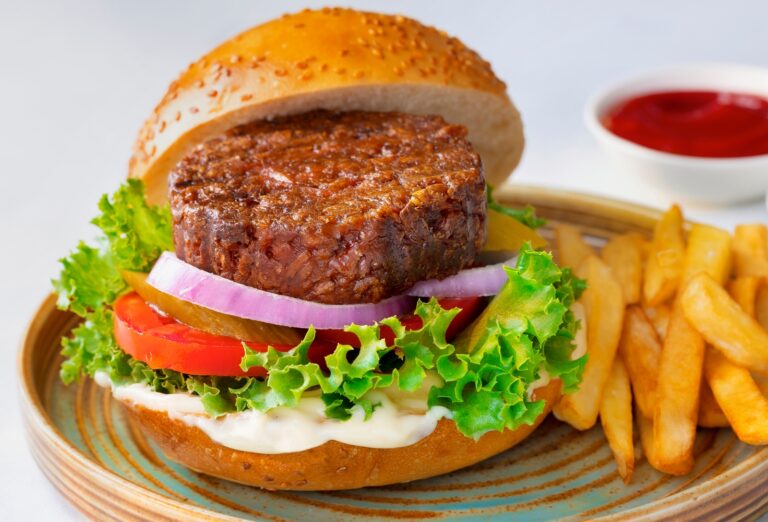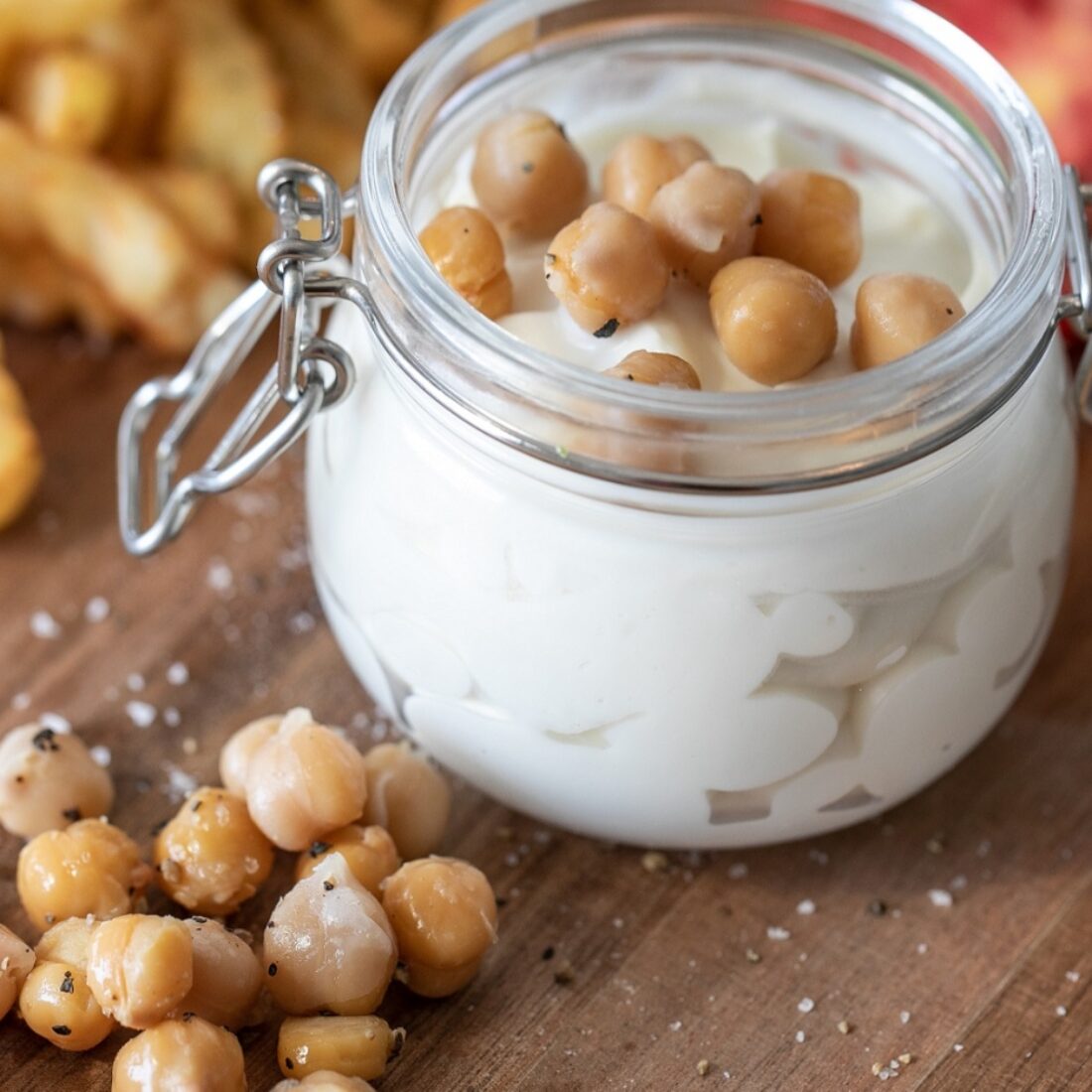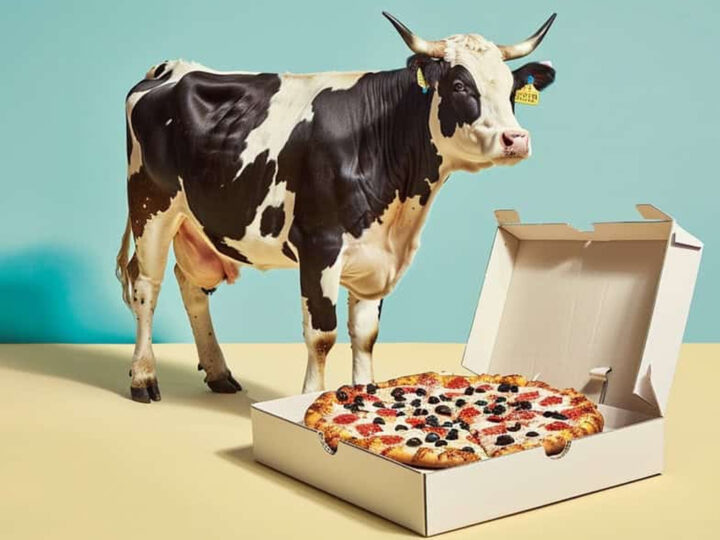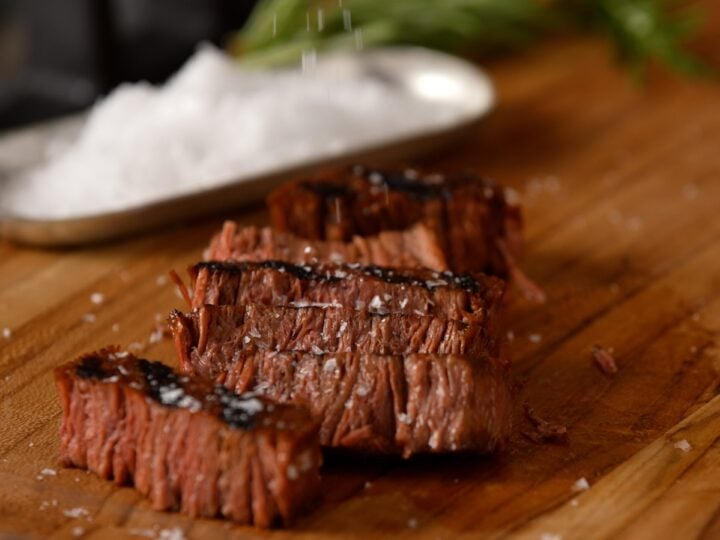Soy is the undisputed ruler of the plant-based alternative protein kingdom, even 60 years after it hit the mass market.
Next in line is pea protein, introduced about 20 years ago.
The latest legume to claim an alternative protein crown: chickpeas, also known as garbanzo beans.

“Two options are not enough to meet the need to diversify nutrition and offer choices that are healthier and more sustainable,” says Taly Nechushtan, CEO of Israeli chickpea protein pioneer InnovoPro.
“The world of food and beverage is searching for more opportunities in this in-demand and growing category,” she tells ISRAEL21c, especially amid concerns about allergies, sustainability and deforestation.
If soy is the king of alt-protein, chickpeas are the queen of legumes, Nechushtan says.
“Chickpeas have been consumed by humans for more than 3,000 years in many countries and cultures and have been appreciated for years as a very good source of protein and fiber. The food-tech industry is now bringing chickpeas to a more concentrated compound so we can consume it in different products — not just hummus.”
Growing market
The global chickpea protein ingredients market – including concentrates, isolates, and flour — is projected by some analysts to reach $737.8 million by 2025.
According to Future Market Insights, “Chickpeas are a good source of protein and fiber, and they are low in fat. Hence, growing consumption of healthy snacks is expected to create lucrative growth prospects for the chickpea market players. The demand for chickpeas is also being driven by rising popularity of plant-based diets,” the report states.

InnovoPro and another Israeli food-tech company, ChickP, appear on Market Reports World’s list of the nine leading developers of chickpea protein ingredients worldwide.
ISRAEL21c looks at how these two platforms are opening new possibilities for food and beverage makers across the globe.
Next-gen protein
“InnovoPro is a B2B company headquartered in Ra’anana. We have centers in Europe and the US where we work with food and beverage clients to formulate solutions for their pain points,” Nechushtan explains.
Founded in 2013, InnovoPro recently partnered with Ingredion, a global ingredient solutions provider with customers in over 120 countries, to provide next generation chickpea proteins for the North American market.

The distribution partnership will increase the availability of chickpea protein while helping food and beverage manufacturers meet growing consumer demand for plant-based products that deliver what Nechushtan describes as “the five pillars” of sustainability, nutrition, taste, texture and functionality.
“Today, many plant-based products have long lists of ingredients including stabilizers and colors. Consumers want industrialized products that save them time, but they want them to be healthier. It’s a reasonable request but hard to find,” says Nechushtan.
“We offer an all-in-one solution: chickpea proteins that are functional, neutral in taste, sustainable, nutritious, and that allow a ‘clean label’ offering.”

In addition to InnovoPro’s world-first chickpea-based textured protein for meat alternatives, the company’s egg white replacer is used in 12 countries to create vegan desserts, mayonnaise, chocolate and nutritional bars, and in the United States for vegan pancakes and athletic supplement powders.
“We’ll offer more and more solutions for more and more categories,” Nechushtan predicts.
Ice cream without cows
Rehovot-based ChickP Protein, a food-tech startup founded in 2016 based on 20 years of research by pediatric gastroenterologist Dr. Ram Reifen at Hebrew University, recently introduced chickpea protein isolate for plant-based ice cream.

This brings a clean-label alternative to a category that relies on soy and coconut oils to achieve a creamy mouthfeel; and on additives such as guar gum, cellulose and modified starches to stabilize the frozen dessert and give it “scoopability.”
“Our ChickP Isolate ingredient answers consumers’ growing demand for vegan products with a dairy-like experience,” says CEO Liat Lachish Levy.
“Consumers, especially flexitarians, have become much pickier when choosing a frozen indulgence and will not compromise on flavor or mouthfeel. When we started the project, the goal was to create a non-dairy ice cream that tastes, looks, and feels like the real thing.”
ChickP developed the prototype with its non-GMO protein isolate in cooperation with Vaniglia, a premium international ice cream chain headquartered in Israel.
Lachish Levy says the same ChickP isolate has many other potential applications, “such as firm and cream cheeses as well as yogurts, which typically require stabilizers.”

In addition to dairy substitutes, ChickP’s neutral-tasting powdered protein isolates can be the basis for plant-based beverages, pastries, snacks, cereals, meat alternatives and specialized nutritional needs such as weight-loss items, functional foods and supplements.
“We currently are developing over 20 plant-based applications with leading food and beverage companies with our pure ChickP protein,” said Lachish Levy.
Growing chickpeas sustainably
In terms of sustainability, more and more countries are growing chickpeas.
This phenomenon is a sort of silver lining of the climate crisis cloud, says Nechushtan, because some regions that used to be too cold for chickpea crops are now able to sustain it.
Here’s where another Israeli company has a promising stake in the chickpea revolution.
Equinom breeds new non-GMO varieties of the plant-based food industry’s primary source crops — pea and soy – that require only minimal processing, thereby improving taste and nutrition and reducing costs.

The company’s proprietary algorithms characterize the biochemical and genomic traits in a vast array of seed varieties, enabling the development of ingredients with desirable traits (such as mild taste, light color and high protein) for food production – without genetic modification.
Equinom recently announced a $35 million funding round earmarked for, among other things, advancing breeding programs for additional protein source crops including chickpea, fava, mung bean and cowpea.

















